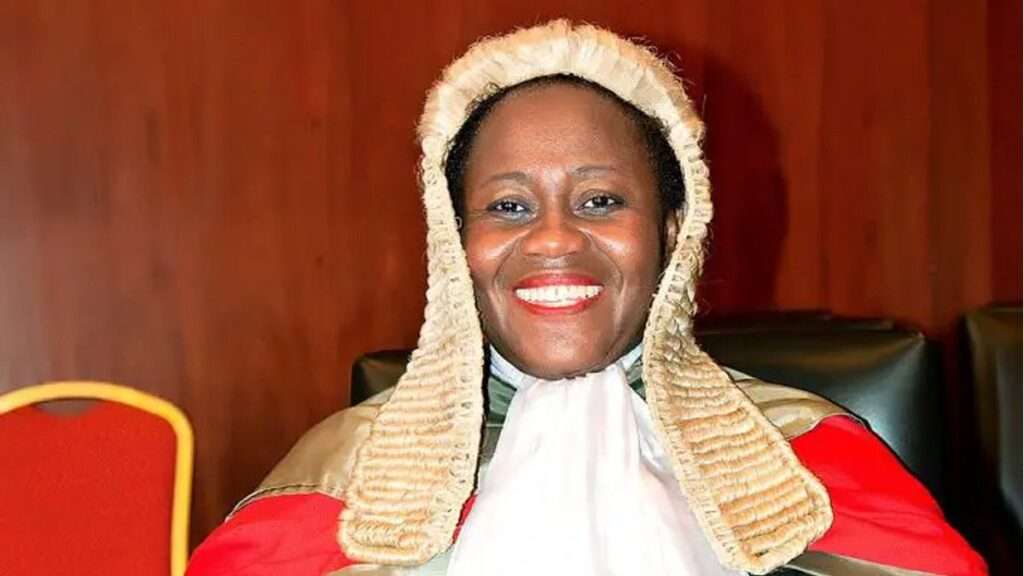In a recent public statement, former Special Prosecutor Martin Amidu expressed his dissatisfaction with the decision made by Chief Justice Gertrude Sackey Torkornoo regarding his petition for the removal of his successor, Kissi Agyebeng. This issue raises important questions about judicial processes, transparency, and accountability in Ghana’s legal system.
Expressing his dissatisfaction, Mr. Amidu criticized the process, particularly the lack of transparency. He highlighted that he was not provided with a copy of the Chief Justice’s review, which he deemed essential for accountability and transparency.
“The outcome of the petition was not mine to make, and I ought not normally to have any regrets whatsoever about any outcome made in accordance with the taught traditions of the exercise of judicial discretion, in which a determination is made by the Chief Justice that my petition disclosed no prima facie case for the Special Prosecutor to answer.”
Martin Amidu, former Special Prosecutor
Amidu’s frustration with the process underscores a significant issue: the need for greater transparency in judicial reviews, especially in cases involving high-profile figures and serious allegations. His criticism suggests a belief that the process lacked openness, potentially undermining public trust in the judiciary’s impartiality and thoroughness.
“I was not given a copy of the ‘review of the existence or absence of a prima facie case’ submitted by the Chief Justice leading to her determination with respect to my petition to aid the accountability and transparency of the outcome.”
Martin Amidu, former Special Prosecutor
The right to information is a fundamental aspect of democratic governance. It ensures that citizens can hold public officials accountable and fosters a culture of transparency. In this context, the refusal to provide Amidu with the Chief Justice’s review document raises critical questions about the adherence to democratic principles within Ghana’s judiciary.
Amidu’s grievances are not merely about the dismissal of his petition but about the opaque manner in which the decision was reached. The lack of access to the review document prevents a comprehensive understanding of the Chief Justice’s reasoning, thereby hindering informed public discourse.
Chief Justice’s Determination

The Chief Justice, Mrs. Justice Gertrude Sackey Torkornoo, submitted her review of the petition, concluding that it lacked the necessary factual and legal foundation to establish a prima facie case for Agyebeng’s removal. The Presidency notified Mr. Amidu of this decision in a one-page letter, referencing section 15(3) of the Office of the Special Prosecutor Act, 2017.
“The factual and legal foundation of the petition falls short of the standard required to establish a prima facie case for the removal of the Special Prosecutor.”
Chief Justice, Mrs. Justice Gertrude Sackey Torkornoo
Mr. Amidu filed a petition dated April 30, 2024, seeking the removal of Kissi Agyebeng, the current Special Prosecutor. The petition, sent to President Nana Addo Dankwa Akufo-Addo and subsequently conveyed to Chief Justice Torkornoo, alleged several serious breaches by Agyebeng.
Among these were claims of procurement irregularities in vehicle purchases for the Office of the Special Prosecutor (OSP), abuses involving the judiciary and administration of justice, violations of citizens’ rights through arrests and detentions, breaches of the right to information, and improper appointments within the OSP.
Amidu also accused Agyebeng of misusing his office by targeting individuals such as Cecilia Dapaah and Prof. Frimpong Boateng.
The Office of the Special Prosecutor was established to address high-level corruption, and its effectiveness hinges on the integrity of its leadership and the processes governing it. Allegations of misconduct within such an office, whether founded or unfounded, must be addressed with the utmost seriousness and transparency to maintain public confidence.
The public criticism by Martin Amidu regarding the dismissal of his petition by Chief Justice Gertrude Sackey Torkornoo highlights critical issues of transparency and accountability within Ghana’s judicial system. While the Chief Justice determined that the petition lacked the necessary foundation for further action, the lack of transparency in the process has raised valid concerns.
For justice to be truly served, and for public trust in the judiciary to be upheld, it is essential that judicial decisions, especially those involving high-stakes allegations, are made with full transparency. This case serves as a reminder of the ongoing need for vigilance and integrity in the fight against corruption and the administration of justice.
READ ALSO: Wizkid Announce ‘MORAYO’ Album as the Best He Ever Made





















